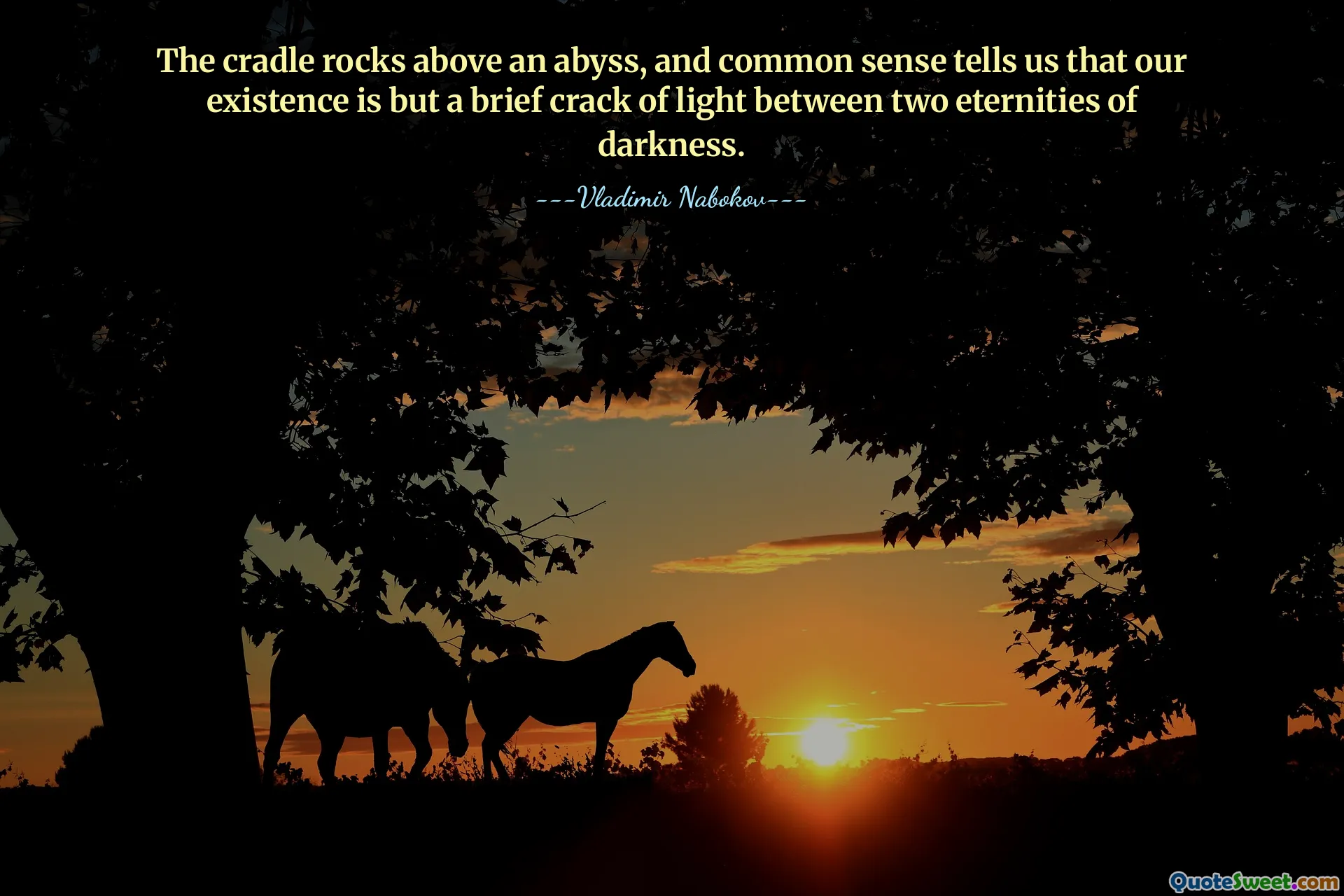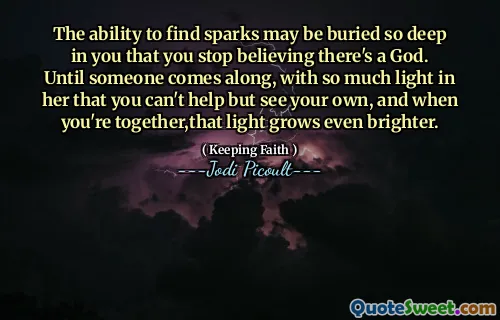
The cradle rocks above an abyss, and common sense tells us that our existence is but a brief crack of light between two eternities of darkness.
This quote by Vladimir Nabokov provides a poignant contemplation on the nature of human existence. The imagery of a cradle rocking above an abyss evokes a sense of vulnerability and uncertainty, suggesting that life is precarious and fragile. The "abyss" can be interpreted as the unknown—both before birth and after death—framing our existence as a transient phenomenon suspended between two vast, incomprehensible voids. Nabokov’s phrase "a brief crack of light" emphasizes the fleeting nature of our time here, highlighting how temporary our consciousness and presence are in the grand cosmic scale. It sparks a humbling awareness that despite the pressures, struggles, or achievements we might experience, everything we know is but a short burst of illumination amidst overwhelming darkness. This can bring a dual perspective: on one hand, it elicits an existential fear or nihilism because our time is limited and surrounded by mystery; on the other hand, it presents a profound call to cherish the light—our life, the experiences, emotions, and connections we build—because it is precious precisely due to its brevity. The quote also invites reflection on the paradox of existence: whether meaning is found in the light itself or how we engage with the surrounding abyss. Ultimately, this passage resonates deeply as it captures the human condition—a transient spark within eternal darkness, spurring both awe and existential meditation.






